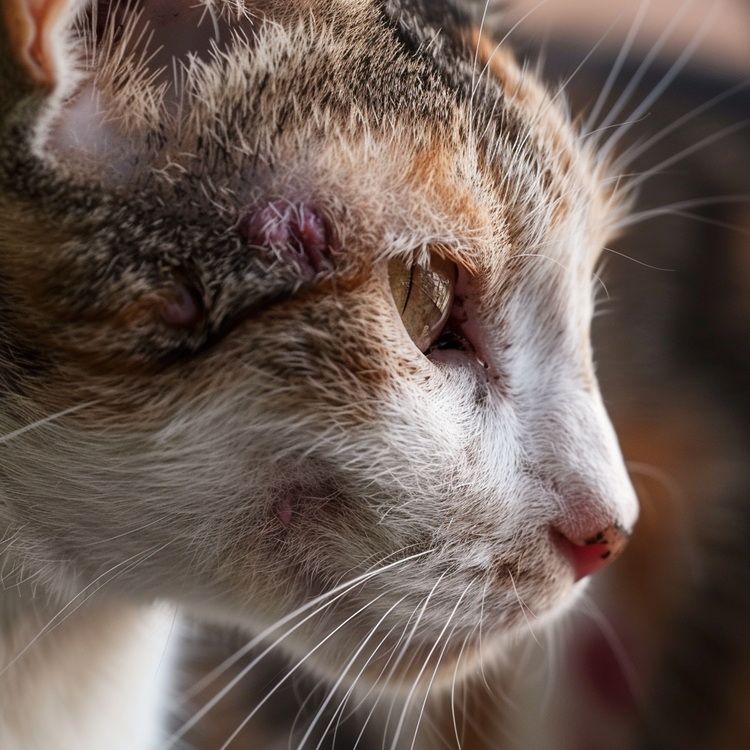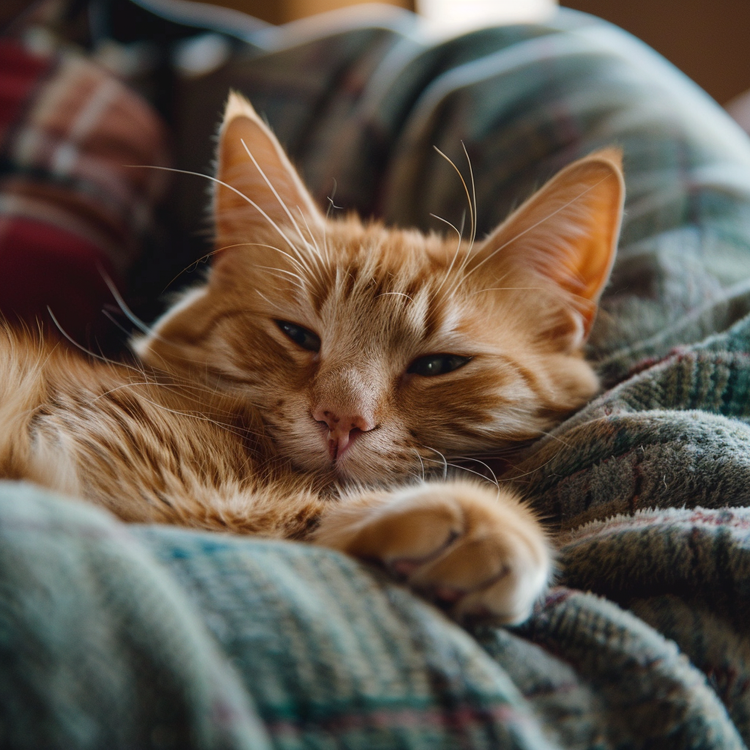Cats and Anxiety: Understanding and Coping
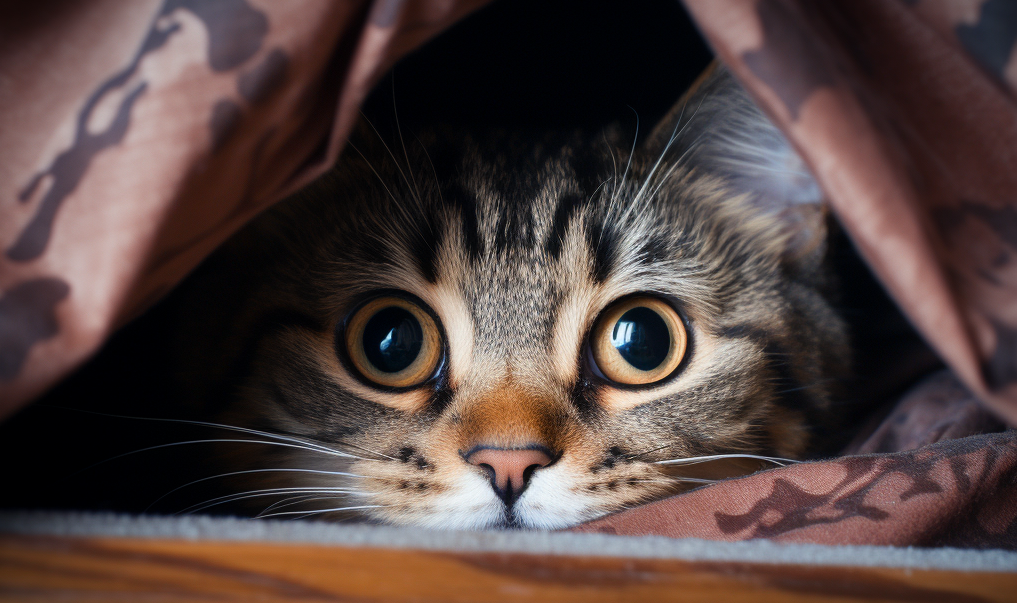
Anxiety in cats, often a subtle yet impactful aspect of their wellbeing, is an issue that cat owners should not overlook. Just like humans, our feline companions can experience anxiety, which may manifest in various forms and intensities. Understanding the roots and signs of this anxiety is crucial, as it significantly influences a cat's behavior and overall health. Acknowledging and addressing feline anxiety not only enhances the quality of life for our pets but also strengthens the bond we share with them. This blog delves into the causes, symptoms, and effective coping strategies for cat anxiety, providing a comprehensive guide for cat owners. By fostering awareness and offering practical solutions, we aim to help you create a more serene and joyful environment for your beloved cats.
What Causes Anxiety in Cats?
Anxiety in cats, a complex emotional state, is often triggered by various environmental and situational factors. One of the most common causes is a change in their environment. Cats are creatures of habit, and even small alterations in their living space – such as moving furniture, introducing new pets, or relocating to a new home – can provoke anxiety. This sensitivity to change underscores the need for gradual adaptation in any new situation.
Loud noises are another significant anxiety trigger for cats. Thunderstorms, fireworks, or even loud household appliances can be alarming and unsettling for them. Their heightened auditory perception makes them more susceptible to stress from such disturbances.
Moreover, a cat’s past experiences play a pivotal role in shaping its anxiety levels. Cats with a history of trauma, neglect, or abuse are more prone to anxiety. These experiences can leave a lasting impact, making them more sensitive to certain stimuli or situations that remind them of their past distress.
Understanding these triggers is the first step in mitigating anxiety in cats. By recognizing what upsets our feline friends, we can take proactive measures to create a more secure and comfortable environment for them.
Signs of Anxiety in Cats
Recognizing the signs of anxiety in cats is crucial for early intervention and effective management. Unlike humans, cats cannot verbally express their distress, so it's important to be aware of non-verbal cues. One of the most common signs is hiding. Cats often seek solitude and shelter when feeling anxious, preferring hidden or high spots to feel secure. If your cat is spending more time than usual under the bed or in other secluded areas, it might be a sign of anxiety.
Aggressive behavior is another indicator. This can include hissing, swatting, or biting, especially in situations where they previously showed no aggression. This change in behavior can be a cat's way of expressing discomfort or fear.
Excessive grooming is also a notable symptom. While grooming is a normal part of a cat's routine, over-grooming to the point of causing bald spots or skin irritation is a clear sign of anxiety. It's a self-soothing behavior that, if excessive, warrants attention.
Other signs include changes in eating or toilet habits, excessive vocalization, or restlessness. Early recognition of these signs is vital in addressing your cat's anxiety. Understanding and responding to these behaviors can significantly improve their quality of life and ensure they feel safe and loved.
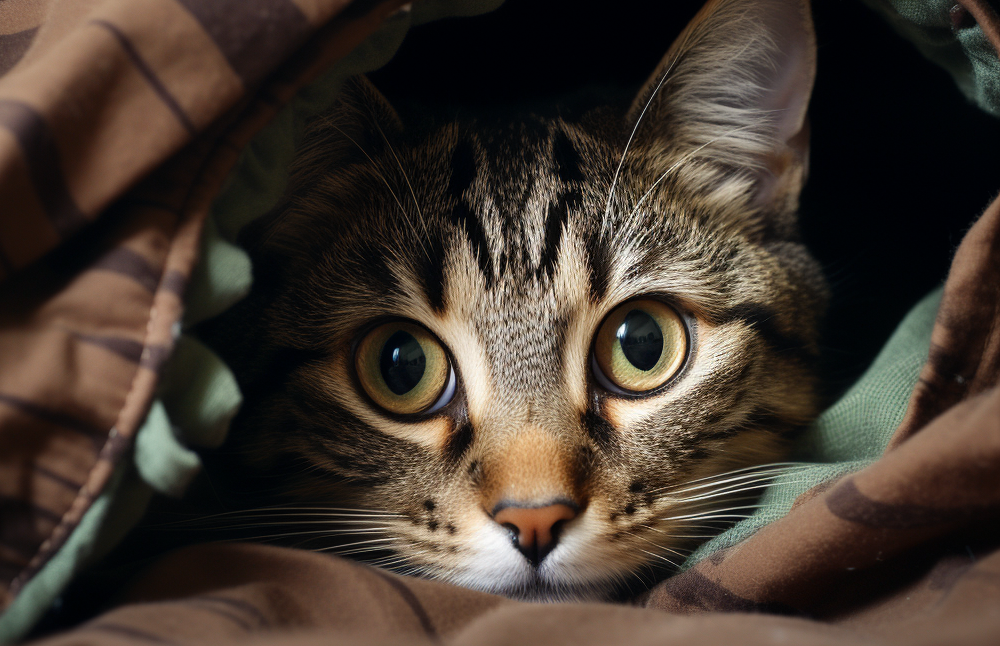
The Impact of Anxiety on Cats' Health
Prolonged anxiety in cats can lead to a spectrum of health issues, both physical and behavioral. One of the primary concerns is digestive problems. Anxiety can disrupt their eating habits, leading to issues like loss of appetite or, conversely, overeating. In some cases, it can even cause gastrointestinal disturbances such as diarrhea or constipation.
A cat's immune system can also be compromised due to chronic stress, making them more susceptible to infections and illnesses. This lowered immunity is a significant risk factor for various health problems and can affect their overall wellbeing.
Behaviorally, anxious cats may exhibit changes such as increased aggression or withdrawal. They might become more territorial or start avoiding interaction with humans and other pets. In severe cases, these behavioral changes can lead to self-harm, such as excessive grooming or obsessive behaviors.
Recognizing and addressing anxiety in cats is vital for their physical and emotional health, ensuring they lead a balanced and happy life.
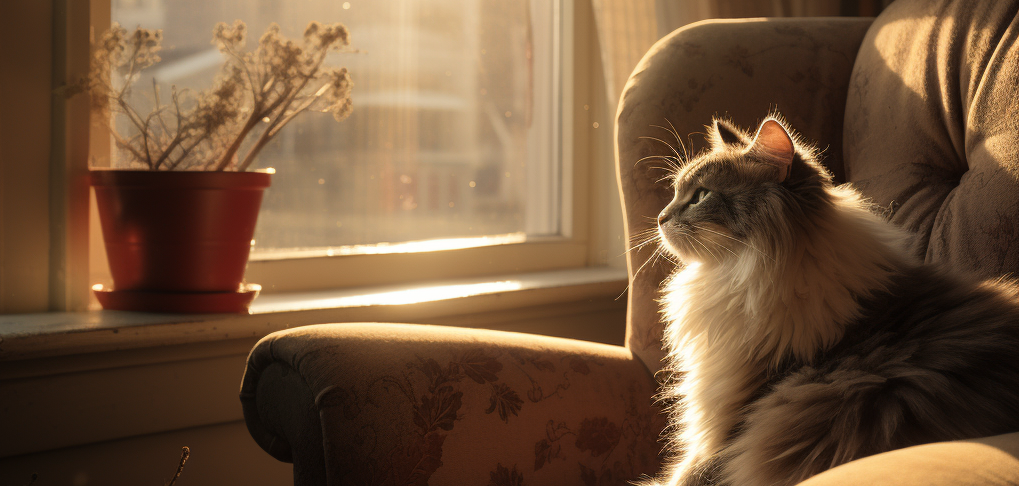
How to Help Your Cat Cope with Anxiety
Anxiety in cats, while challenging, can be managed with thoughtful and compassionate care. One of the most effective ways to help your anxious cat is by creating a safe space. This could be a quiet room or a cozy corner with their bed, toys, and perhaps a scratching post. The idea is to provide an area where your cat can retreat and feel secure when overwhelmed.
Maintaining a consistent routine is another crucial aspect of reducing anxiety. Cats thrive on predictability, so keeping a regular schedule for feeding, play, and rest can significantly alleviate stress. Predictable interactions help build trust and a sense of safety, reducing anxiety over time.
The role of play and interaction cannot be overstated. Regular playtime not only diverts their attention from stressors but also provides an outlet for their energy. Interactive toys, puzzles, or even a simple laser pointer can engage their hunting instincts and provide mental stimulation. This kind of engagement helps reduce anxiety and builds a stronger bond between you and your cat.
In addition to these strategies, it's important to monitor your cat's environment for potential stressors. Things like loud noises, unfamiliar people, or other pets can contribute to anxiety. Identifying and minimizing these triggers can go a long way in creating a calming environment.
Moreover, don't overlook the importance of gentle, reassuring interactions. Speaking in a soft voice, gentle petting, or simply spending time near your cat can be comforting.
However, there are times when professional help is needed. If you notice persistent signs of anxiety or significant changes in behavior, it’s advisable to consult a veterinarian or a cat behaviorist. They can offer tailored advice and, if necessary, prescribe treatments such as medication or recommend behavioral therapy. Remember, each cat is unique, and what works for one might not work for another. Seeking professional guidance ensures your cat gets the appropriate care and support.
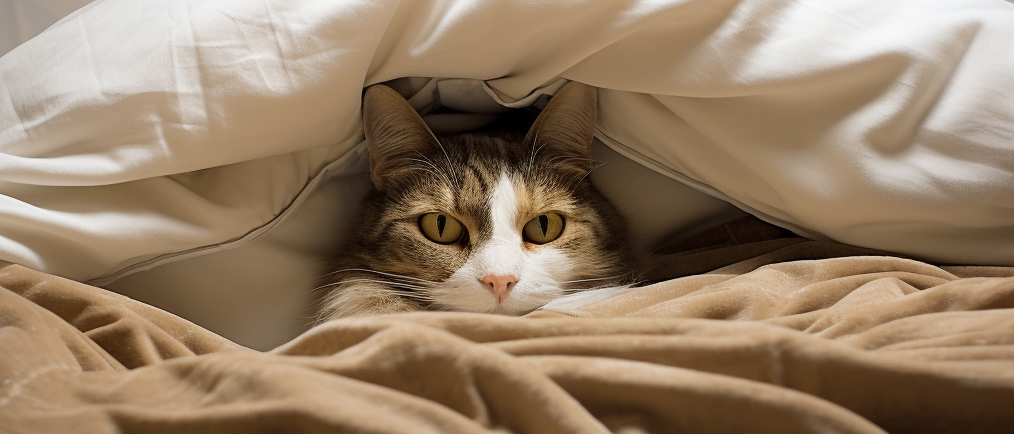
Therapeutic Approaches and Treatments
When dealing with feline anxiety, a variety of therapeutic approaches can be considered. Pheromone diffusers are a popular non-invasive option. These diffusers emit synthetic pheromones that mimic the natural calming signals cats use to communicate safety and reassurance to themselves. They can significantly reduce stress-related behaviors in many cats.
Medications are another avenue, especially for severe cases of anxiety. Anti-anxiety drugs, prescribed by a veterinarian, can help balance chemicals in the brain, alleviating anxiety symptoms. It’s important to note that medication is often most effective when combined with behavioral modifications.
Behavioral therapy, guided by a professional cat behaviorist, can also be highly beneficial. This therapy includes techniques like desensitization and counterconditioning, which are tailored to help cats cope with specific anxiety triggers.
Each cat responds differently to various treatments, highlighting the importance of a personalized approach. What works for one cat may not work for another. A combination of these therapies, adjusted to the individual needs and responses of your cat, often yields the best results. Consulting with a veterinarian or a cat behaviorist is crucial to determine the most suitable and effective treatment plan.
Case Studies and Success Stories
One inspiring success story involves a once-timid cat named Luna. After moving to a new home, Luna exhibited signs of severe anxiety, hiding constantly and avoiding any human contact. With the introduction of a pheromone diffuser and a consistent, comforting routine established by her owners, Luna gradually began to show remarkable improvement. She became more confident, started seeking affection, and even began to play openly. This transformation highlights the incredible impact that a tailored approach to anxiety management can have, showcasing not only improved behavior but also a significant enhancement in the quality of life for these sensitive creatures.
Final Thoughts:
Understanding and addressing anxiety in cats is crucial for their wellbeing. Key points to remember include recognizing the common triggers of anxiety, such as environmental changes and loud noises, and identifying signs like hiding, aggression, and excessive grooming. Proactive measures, including creating a safe space and maintaining a routine, play a vital role in managing anxiety. Therapeutic approaches like pheromone diffusers, medication, and behavioral therapy should be personalized. The remarkable improvements seen in cats like Luna demonstrate the positive impact of these strategies. As cat owners, staying attentive and proactive in managing your cat’s anxiety is essential for nurturing a healthy, happy, and stress-free life for your beloved pet.
Frequently Asked Questions:
Is anxiety common in cats?
- Yes, anxiety is relatively common in cats. It can affect cats of all ages and breeds. Understanding and addressing it is essential for their wellbeing.
How can I create a safe space for my cat?
- To create a safe space, choose a quiet area with their essentials (bed, toys, litter box), and limit access to potential stressors.
Are there natural remedies for cat anxiety?
- Yes, some natural remedies like catnip or herbal supplements may help. However, consult your vet before trying any new treatment.
When should I seek professional help for my cat's anxiety?
If your cat's anxiety is severe, persistent, or causing behavioral problems, consult a veterinarian or a certified cat behaviorist for guidance.
Can anxiety in cats be fully cured?
- While some cats may fully recover from anxiety, others may need ongoing management. The goal is to improve their quality of life.
Are there specific breeds more prone to anxiety?
- While anxiety can affect any breed, some, like Siamese and Burmese cats, may be more prone. However, individual temperament matters more than breed.
How can I help my cat during thunderstorms or fireworks?
- Create a safe, quiet space for your cat, play soothing music, and consider pheromone diffusers or anxiety wraps. Consult your vet for anti-anxiety medications if needed.
Can I use essential oils to calm my anxious cat?
- Essential oils can be toxic to cats, so it's not recommended. Consult your vet for safe alternatives.
Is separation anxiety common in cats?
Yes, some cats can develop separation anxiety, often due to abrupt changes in their routine. Gradual departures and arrivals can help ease this anxiety.
